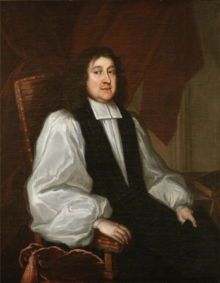Thoughts of Tillotson at Morning Prayer on Summer Sundays

Sitting on my desk, alongside a somewhat battered Church of Ireland BCP 1926, is a hard-backed copy of a 1973 Alcuin Club study, by Timothy J. Fawcett - The Liturgy of Comprehension 1689: An abortive attempt to revise The Book of Common Prayer . It is, I think, the only published study of the Liturgy of Comprehension, the attempted revision of the Prayer Book in the immediate aftermath of the Glorious Revolution, in an attempt to reconcile Dissenters to the Church of England. It sits on my desk for two reason. Firstly, because it influenced the Church of Ireland post-disestablishment revision of the Prayer Book. Secondly, because of my affection for John Tillotson, Archbishop of Canterbury 1693-97, a strong supporter of William and Mary, and a leading figure in the proposed revision of 1689. It is not that I welcome all the suggested revisions of 1689. Some, I think, would have been unwise and de-stabilising for the Church of England and 18th century Anglicanism. Some were unnecessary,...







